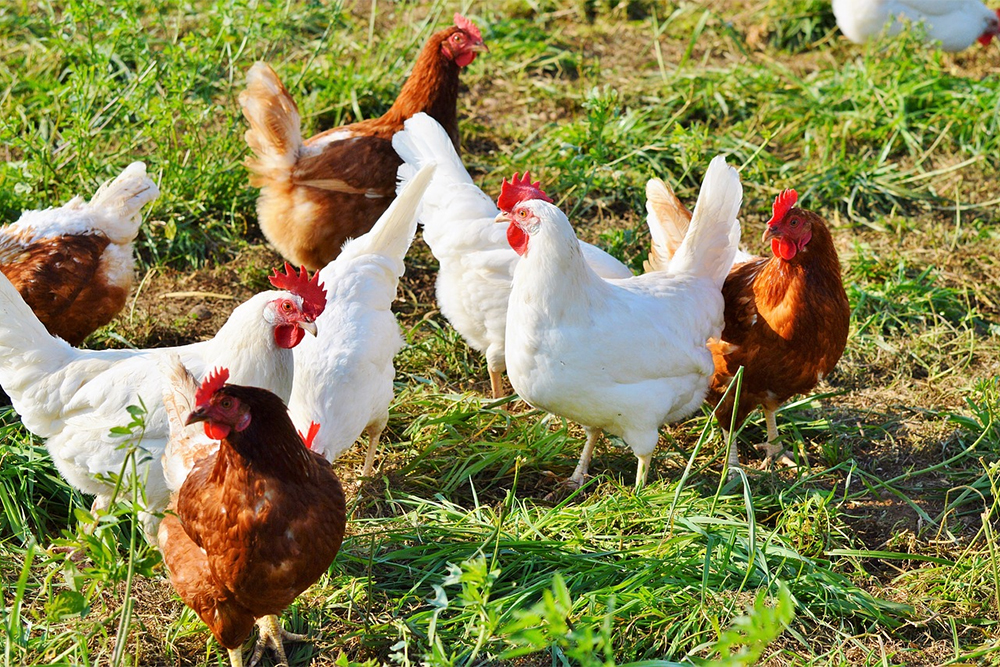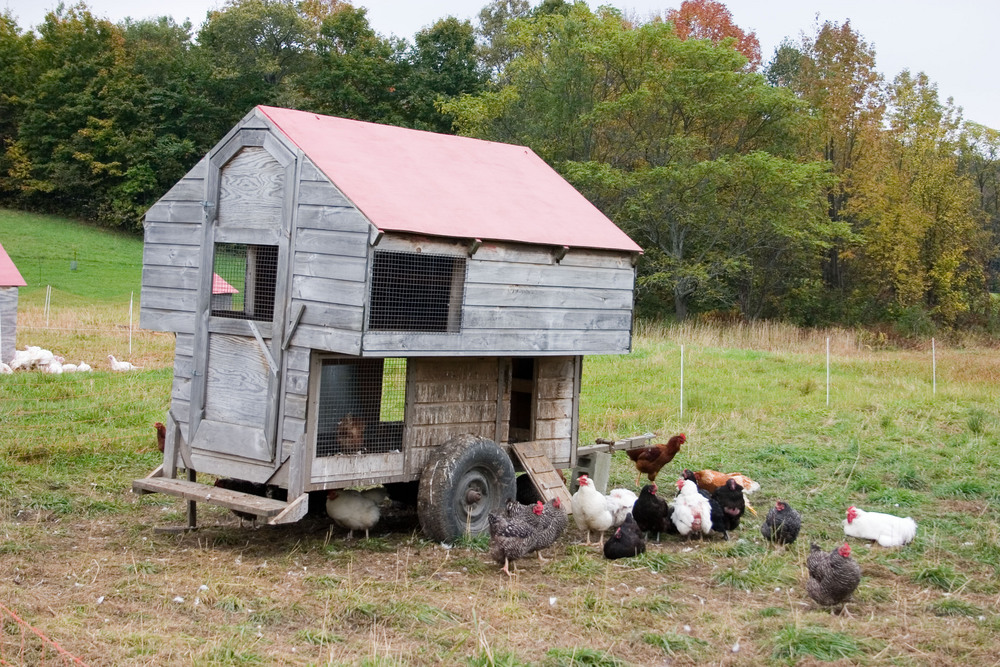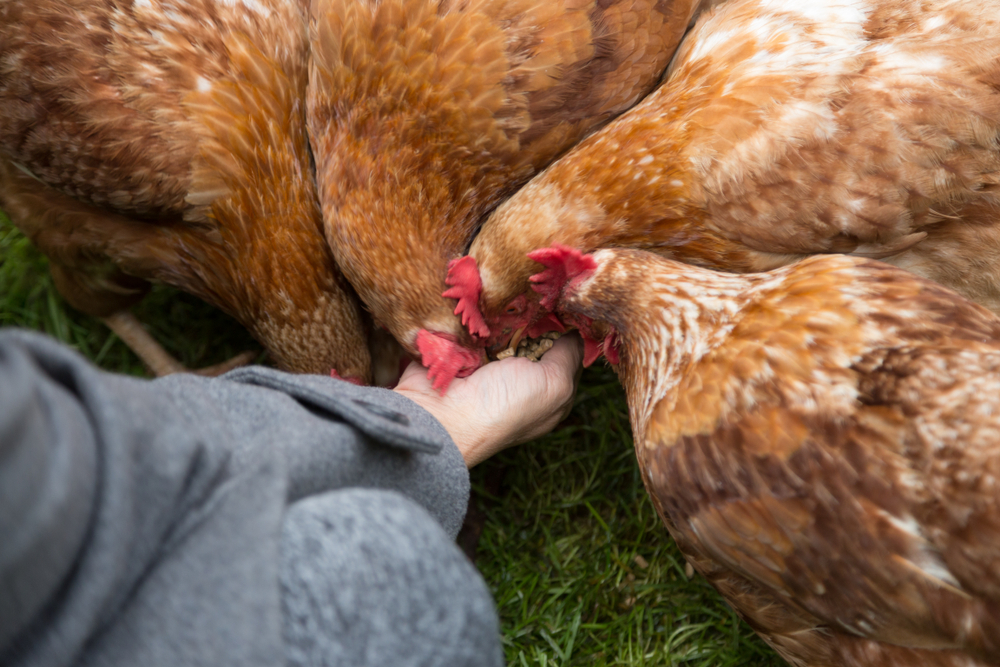Do It Yourself
How To Raise Free Range Chickens

During uncertain times, it’s important to be self-sufficient. One of the ways to do that is to have your own food supply through raising your own free range chickens. So, how do you start?
Raising Your Own Free Range Chickens
Homesteading is regaining popularity as Americans seek independence from reliance on the government and on supply chains that can be easily interrupted. With the economy, our freedoms, and our way of life under attack, self-sufficiency is a priority again.
As a first step towards backyard farming, people are turning to chickens, thanks to their easy upkeep and frequent egg-laying. Chickens are less expensive to maintain and need less space and care than other livestock. Their eggs are also harvested without any discomfort caused to them.
Even a dozen chickens can produce more eggs than a family knows what to do with! Selling eggs can pay for the chicken feed you need, especially if you are raising free-range chickens.
What Does ‘Free Range’ Mean?
“Free range” is a buzzword these days, as marketers tug at the heartstrings of consumers who are concerned about the living conditions of chickens.
Unfortunately, on a commercial level, the term “free range” only means that the chickens have access to an outdoor space. That space could be 2’ wide and covered in gravel, and it would still qualify as “free range” for packaging purposes.
But for the average farmer and the novice chicken owner, “free range” means letting their chickens roam – over several acres or even miles. Your flock may not even stray as far as you let them, but the freedom to walk, eat, hunt, and dust at their leisure will result in healthier chickens and better eggs.
Free Range Chickens Can Still Use a Coop

There are several reasons that you will still want a coop for your chickens, even if you let them out each morning.
If you live in a climate that gets cold in the winter, the coop can help provide warmth, especially if you choose to use a heat lamp. In the summer, it can help provide shade.
The coop provides shelter from predators like hawks, foxes, raccoons, coyotes, opossums, and weasels. Chickens can still become prey during daylight hours, but the dangers at night are much more significant.
Chickens can lay eggs in any number of places, not all of which are convenient or known to you. Having a chicken coop where you place wooden or plastic eggs indicates to the chickens where to lay their eggs and can save you a lot of searching.
Designate Space for Your Chickens
Chickens will make a mess in more ways than one. They will eat plants and flowers, peck and dig holes, and also poop all over the space you give them. Keep this in mind when you designate space for your chickens, especially if you have invested heavily in your yard or landscaping.
Create and Stick to a Routine

Just like any other animal, chickens can be trained. If you lock them in the coop at night, call them in with some feed from the same bucket every evening. They will come running and you can safely close them up for the evening.
Be consistent with when you let them out in the morning. Chickens that are used to roaming and are unable to do so can get LOUD.
Benefits to Free Range Chickens
Allowing your chickens to roam freely has many benefits, both in their care and their health. You will be able to save money on feed and grit as they find their own. (Grit is how chickens break down their food since they don’t have teeth.)
Chickens eat all sorts of bugs and slugs, and even the occasional rodent and snake, which can help with pest control around the yard.
Free-range chickens are in much better physical health than their cage-kept counterparts and are unlikely to be overweight. They are also happier and stay entertained by all of the hunting and pecking they do.
The diet of a free-range chicken is full of protein, which produces more, and better quality eggs, as well as extending the lives of your chickens.
Choosing Your Chicken Breeds
When it comes time to choose your chicken breeds, there are several questions to ask yourself:
- How many eggs do I want?
- What type of eggs do I want?
- Do I want to eventually kill and eat the chickens?
- What climate do I live in?
- Are there children involved in raising the chickens?
There are actually dozens of breeds of chickens, so be sure to do your research and choose the chickens that best meet your needs.
Have you tried raising free range chickens? We’d love to hear about your experience in the comments section!
Up Next:
-

 Do It Yourself7 months ago
Do It Yourself7 months agoParacord Projects | 36 Cool Paracord Ideas For Your Paracord Survival Projects
-

 Do It Yourself9 months ago
Do It Yourself9 months agoHow To Make Paracord Survival Bracelets | DIY Survival Prepping
-

 Do It Yourself9 months ago
Do It Yourself9 months ago21 Home Remedies For Toothache Pain Relief
-

 Do It Yourself10 months ago
Do It Yourself10 months agoSurvival DIY: How To Melt Aluminum Cans For Casting
-

 Exports8 months ago
Exports8 months agoAre Switchblades Legal? Knife Laws By State








Pingback: How To Raise Free Range Chickens - survival updates